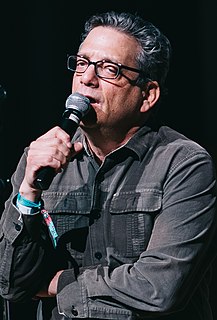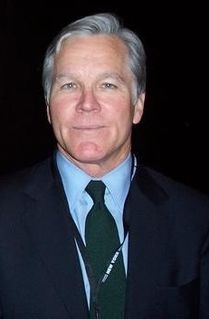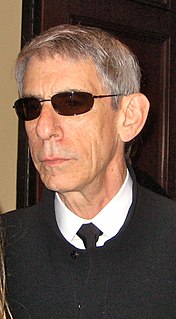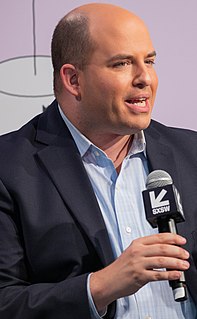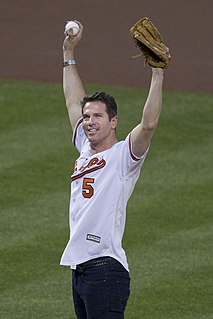A Quote by Mohamedou Ould Slahi
I believed excessively in Conspiracy Theories - though maybe not as much as the U.S. government does.
Quote Topics
Related Quotes
Because those who hold conspiracy theories typically suffer from a crippled epistemology, in accordance with which it is rational to hold such theories, the best response consists in cognitive infiltration of extremist groups. Various policy dilemmas, such as the question whether it is better for government to rebut conspiracy theories or to ignore them, are explored in this light.
It's no accident that there is a nexus between Trump, Roger Stone and Infowars and Alex Jones. It's very much an Infowars presidency in many ways. The President is a conspiracy theorist. He has reliably touted conspiracy theories. It's a core part of how he processes the world epistemically. That is deeply, deeply dangerous, and disturbing.
Maybe we're all a little too desperate these days for a simple formula to explain how our safe world came unhinged. That, as much as anything, may explain one of the more enduring conspiracy theories of the moment, the notion that we are about to send a quarter of a million American soldiers to war for the sake of Israel.
The left wants you to believe that true morality is defined by how much money you give the government, how much money you pay the government, how much money the government gets from you, because only the government does good stuff, only the government does good works, only the government cares about people. It's bogus.
The reason it is difficult is that we have been conditioned to laugh at conspiracy theories, and few people will risk public ridicule by advocating them. On the other hand, to endorse the accidental view is absurd. Almost all of history is an unbroken trail of one conspiracy after another. Conspiracies are the norm, not the exception.
The play of Hillary Clinton is to do exactly what she did with Whitewater, with the conspiracy theories about Vince Foster's suicide, with the conspiracy theory that Clinton Foundation donations somehow went to the Russians to open a Nickel mine in Canada, this is all nonsense. This stuff has been going on for 30 years.



